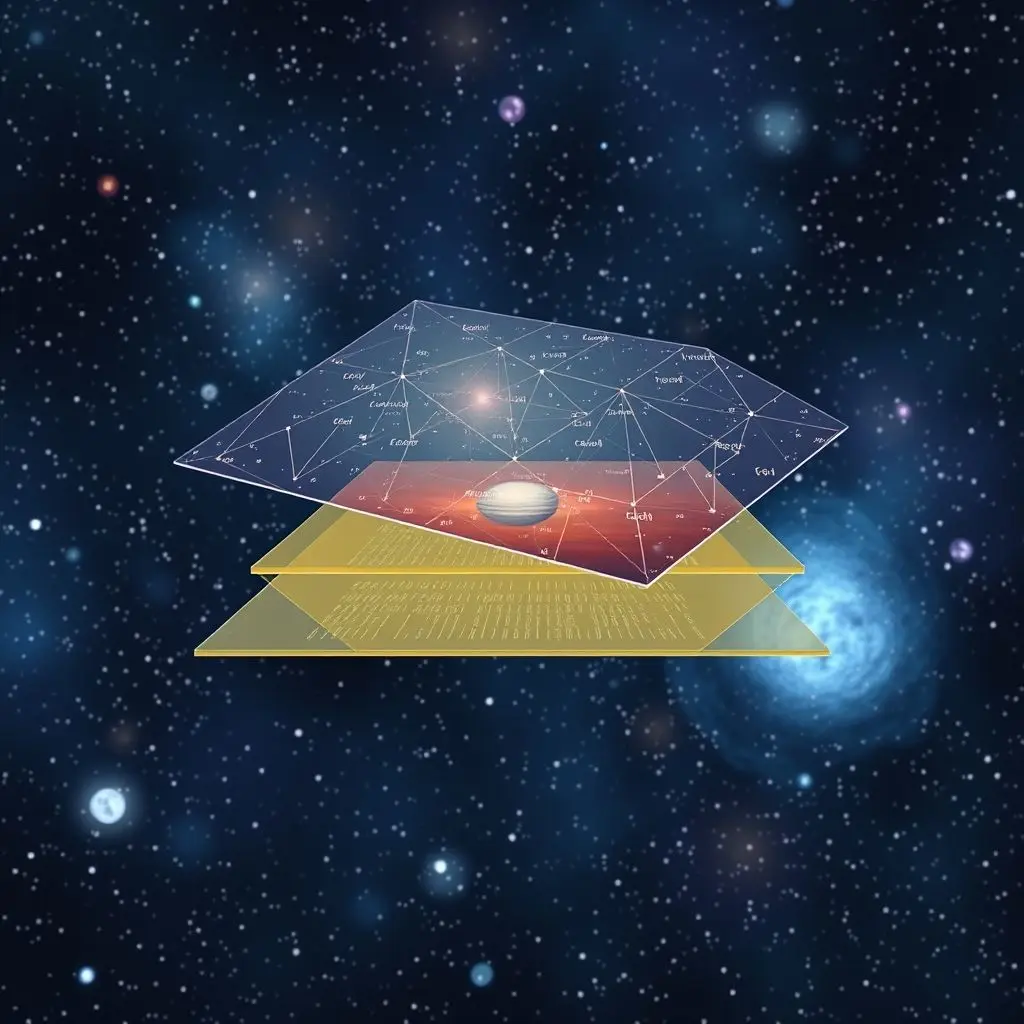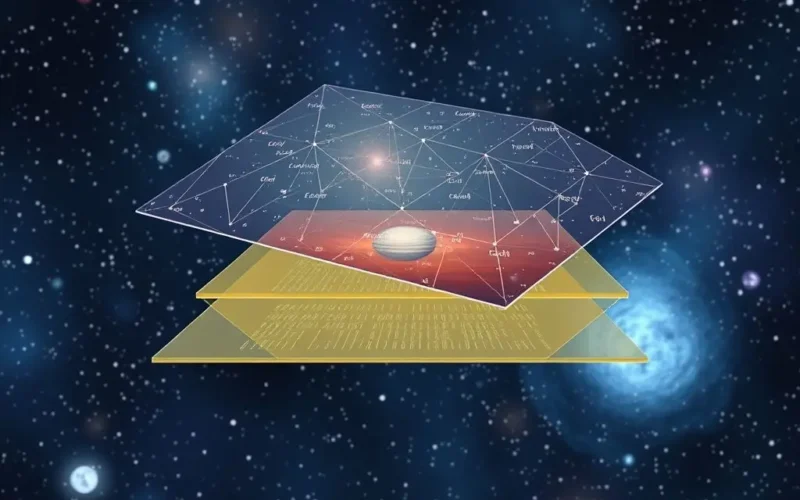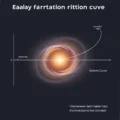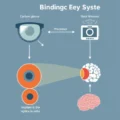Ever had a moment where the world around you felt just a little… off? A strange coincidence, an uncanny feeling, a pattern that seems too perfect? It might sound like the stuff of science fiction, but the idea that our entire universe could be a massive, intricate computer program is a surprisingly serious question being debated by philosophers, physicists, and technologists today.
This isn’t just late-night dorm room chatter; it’s a concept given significant weight by thinkers like Nick Bostrom, a philosopher at the University of Oxford. His renowned ‘Simulation Hypothesis’ presents a compelling argument that statistically, the odds might favor us living within a simulated reality rather than the original, fundamental ‘base’ reality.
Table of Contents
The Thought Experiment Begins: Understanding Bostrom’s Simulation Hypothesis
At its heart, Bostrom’s hypothesis, outlined in his 2003 paper “Are You Living in a Computer Simulation?”, isn’t claiming we *are* definitely in a simulation. Instead, it argues that at least one of the following three propositions must be true:
- The human species is very likely to become extinct before reaching a ‘posthuman’ stage.
- Any posthuman civilization is very unlikely to run a significant number of simulations of their evolutionary history (or variations thereof).
- We are almost certainly living in a computer simulation.
Let’s break down what ‘posthuman’ means in this context. It refers to a civilization that has advanced technologically to a degree far beyond our current capabilities, particularly in computational power and understanding of physics and consciousness. Such a civilization would have resources and knowledge vastly exceeding our own.
Dissecting the Hypothesis: The Three Forks in the Road
Bostrom’s argument hinges on the sheer numbers. Consider a posthuman civilization with immense computing power. If they were interested in their history, or in exploring hypothetical evolutionary paths, they could potentially run highly detailed ‘ancestor simulations’ – simulations so sophisticated that the simulated beings within them would be conscious and indistinguishable from real beings living in a base reality. These simulations could encompass entire planets, galaxies, or even full universes with conscious inhabitants.
Now, think about the scale. If one such posthuman civilization exists and decides to run these simulations, they wouldn’t just run one or two. With vast resources, they could run thousands, millions, or even billions of simulated realities. Each of these simulations could, in turn, produce their own posthuman civilizations (within the simulation) which might also decide to run simulations, and so on.
This is where the probability comes in. If proposition 1 is false (humanity *does* reach a posthuman stage) and proposition 2 is false (posthuman civs *would* run many simulations), then the number of simulated realities containing conscious beings would vastly outnumber the single base reality. If you are a conscious being, where are you statistically most likely to find yourself? In the one base reality, or in one of the billions of simulated realities? The math points overwhelmingly towards being in a simulation.
Therefore, the hypothesis concludes that unless humanity wipes itself out before reaching posthuman capability (prong 1 is true), or unless virtually all posthuman civilizations choose *not* to run simulations (prong 2 is true), then the third prong – that we are likely in a simulation – must be true.

Why Might We Be Living in a Simulation? (Arguments For)
While direct empirical evidence is currently lacking, some arguments lend a degree of theoretical weight to the idea:
- Fine-Tuning of the Universe: The fundamental physical constants of our universe (like the strength of gravity, the mass of particles) seem incredibly finely tuned for the existence of life. A slight change in many of these values would render the universe inhospitable. Some argue this could be explained by a designer (or simulator) setting the parameters just right. In a simulation, parameters can be easily adjusted.
- The Limits of Physics: Some physicists speculate about potential “pixelation” or discreteness at the Planck scale – the smallest theoretical units of length and time. This discreteness could be interpreted as the fundamental resolution limit of a simulation. (Disclaimer: This is highly speculative and not widely accepted empirical evidence).
- Computational Power: Our own technological progress, particularly in computing, is exponential. The idea that future civilizations could achieve computing power capable of simulating consciousness and universes seems plausible, even if distant.
- Ockham’s Razor (Controversial Application): Some might argue, controversially, that if many simulated universes are vastly more probable than one base reality, then the simulation explanation is in a sense ‘simpler’ or more likely *given* the premise of advanced simulators.
Cracks in the Code: Challenges to the Simulation Hypothesis (Arguments Against)
Naturally, the hypothesis faces significant criticism and raises profound questions:
- The Problem of Consciousness: Can consciousness truly be simulated? We don’t understand consciousness well enough to say definitively whether it’s a property that can emerge from computation alone.
- Computational Limits: Simulating a universe down to the quantum level, including billions of conscious beings, would require an unimaginable amount of computing power, possibly exceeding the theoretical limits of even a posthuman civilization’s resources within their own reality.
- The Meta-Simulation Paradox: If we are in a simulation, what about the reality of the simulators? Are *they* in a simulation? This leads to an infinite regress problem. The hypothesis doesn’t explain the ultimate ‘base’ reality.
- Lack of Empirical Evidence: Despite speculation about fine-tuning or pixelation, there is currently no verifiable, empirical evidence that definitively points to our reality being simulated.
- Why Simulate Suffering?: If simulators exist, what would be their motivation? Simulating a reality with immense suffering raises ethical questions about the simulators’ purpose or nature.

Speaking of Glitches… Maybe It’s Just the Admin Updating the Server?
The very idea makes you look twice at weird occurrences, doesn’t it? That strange flicker, that moment of déjà vu, that impossible coincidence. While almost certainly explainable by mundane physics or cognitive biases, the simulation hypothesis adds a layer of intrigue. What if these are just minor hiccups in the cosmic code? Or perhaps the system administrators pushing out a new patch?
Here’s a quick thought-starter we put together, playing with this very idea:
Of course, the idea of finding a literal “glitch” in our reality is pure speculation and remains firmly in the realm of science fiction for now. Physics operates based on consistent, observable laws.

If It’s True, What Does it Mean?
If we were to accept that we live in a simulation, the implications would be staggering:
- Redefining Reality: Our understanding of what is ‘real’ would fundamentally change. Physics might be seen not as fundamental laws of nature, but as the programmed rules of the simulation.
- The Nature of Consciousness: It would strongly suggest that consciousness is an emergent property of complex computation, opening up possibilities for creating simulated consciousness ourselves (within the simulation).
- Purpose and Meaning: Does it change our purpose? If there are simulators, do they have a reason for running the simulation? Are we part of an experiment, an archive, or just a sandbox? This remains unknown and perhaps unknowable from within the simulation.
- Free Will: If our thoughts and actions are ultimately determined by code running on a computer, does free will exist in the way we understand it?

Frequently Asked Questions About Simulated Reality
Is the Simulation Hypothesis a Scientific Theory?
Currently, it’s considered a philosophical hypothesis or a thought experiment rather than a scientific theory. A scientific theory requires testable predictions that can be verified or falsified through empirical observation or experimentation. So far, we lack the means to definitively test the simulation hypothesis.
Could We Prove or Disprove It?
That’s a major challenge. Proving it would likely require finding undeniable evidence of the simulation’s boundaries or code, which seems incredibly difficult from within the system. Disproving it would require ruling out all three prongs of Bostrom’s argument, which is equally challenging, especially the future capabilities of posthuman civilizations.
Who or What Would Be Running the Simulation?
The hypothesis doesn’t specify the nature of the simulators. They could be posthuman descendants of humanity, another alien civilization, or something else entirely. Their motives are also unknown.
Does This Idea Come From “The Matrix”?
While the movie “The Matrix” popularized the concept of living in a simulated reality, the philosophical discussion predates the film. Bostrom’s paper solidified the modern probabilistic argument, but similar ideas appear in philosophy and science fiction throughout history.
Beyond the Screen
Bostrom’s Simulation Hypothesis isn’t just a fascinating intellectual puzzle; it’s a profound thought experiment that pushes us to question the very nature of reality, consciousness, and the potential trajectory of advanced life. It reminds us that our understanding of the universe might be incomplete and that possibilities currently confined to science fiction could one day be taken seriously by science itself.
Whether we are in a simulation or not, the exploration of this idea prompts valuable discussions about the limits of computation, the definition of life, and the ethical responsibilities of creating artificial realities. It’s a hypothesis that might not have a definitive answer anytime soon, but its pursuit forces us to think bigger, deeper, and perhaps, with a little more wonder about the incredibly complex and mysterious universe we inhabit.





